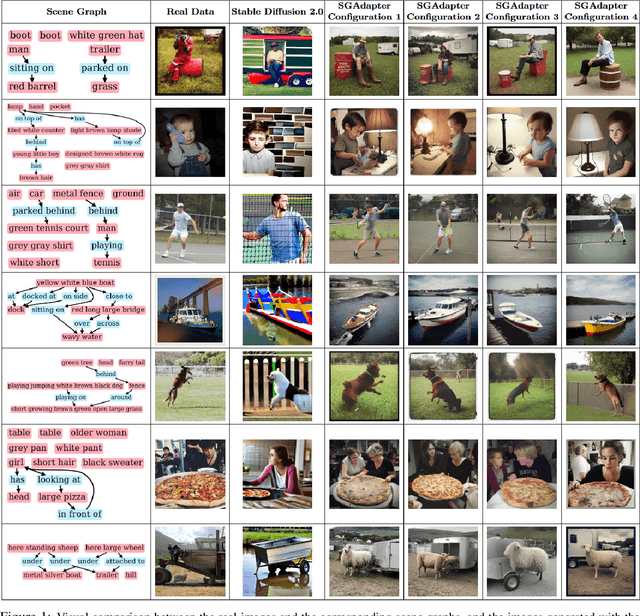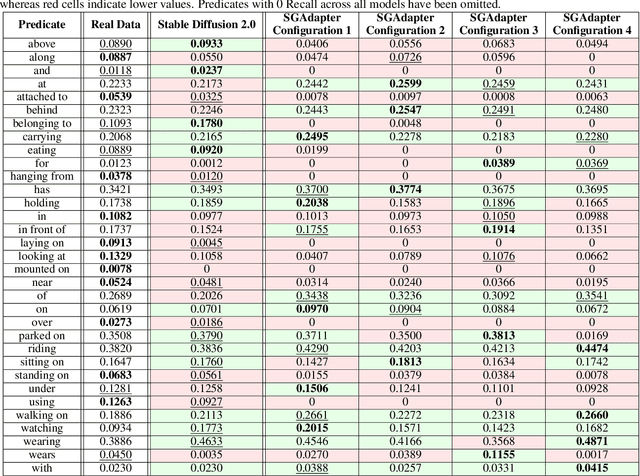Giacomo Savazzi
Neuro-Symbolic Scene Graph Conditioning for Synthetic Image Dataset Generation
Mar 21, 2025



Abstract:As machine learning models increase in scale and complexity, obtaining sufficient training data has become a critical bottleneck due to acquisition costs, privacy constraints, and data scarcity in specialised domains. While synthetic data generation has emerged as a promising alternative, a notable performance gap remains compared to models trained on real data, particularly as task complexity grows. Concurrently, Neuro-Symbolic methods, which combine neural networks' learning strengths with symbolic reasoning's structured representations, have demonstrated significant potential across various cognitive tasks. This paper explores the utility of Neuro-Symbolic conditioning for synthetic image dataset generation, focusing specifically on improving the performance of Scene Graph Generation models. The research investigates whether structured symbolic representations in the form of scene graphs can enhance synthetic data quality through explicit encoding of relational constraints. The results demonstrate that Neuro-Symbolic conditioning yields significant improvements of up to +2.59% in standard Recall metrics and +2.83% in No Graph Constraint Recall metrics when used for dataset augmentation. These findings establish that merging Neuro-Symbolic and generative approaches produces synthetic data with complementary structural information that enhances model performance when combined with real data, providing a novel approach to overcome data scarcity limitations even for complex visual reasoning tasks.
 Add to Chrome
Add to Chrome Add to Firefox
Add to Firefox Add to Edge
Add to Edge